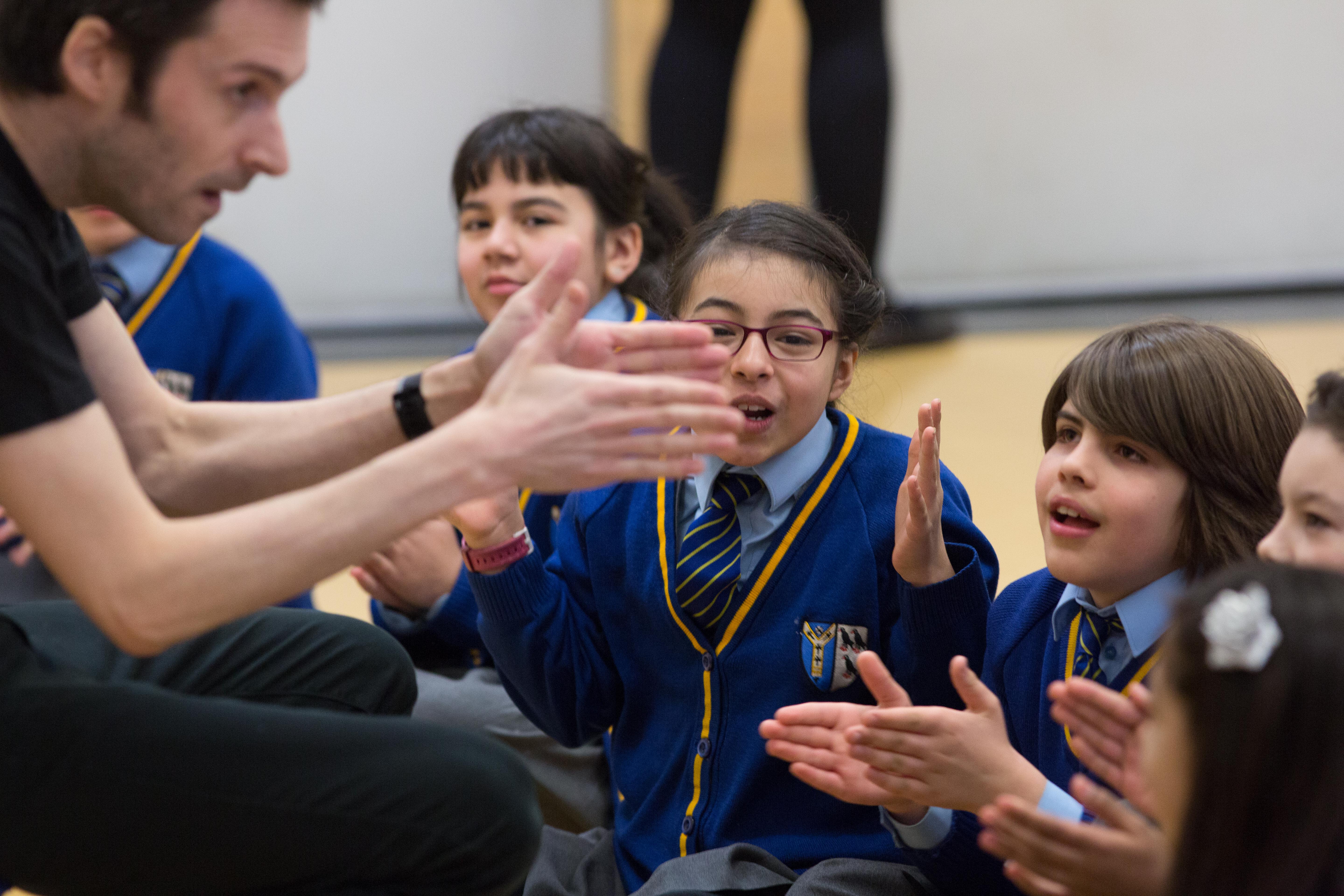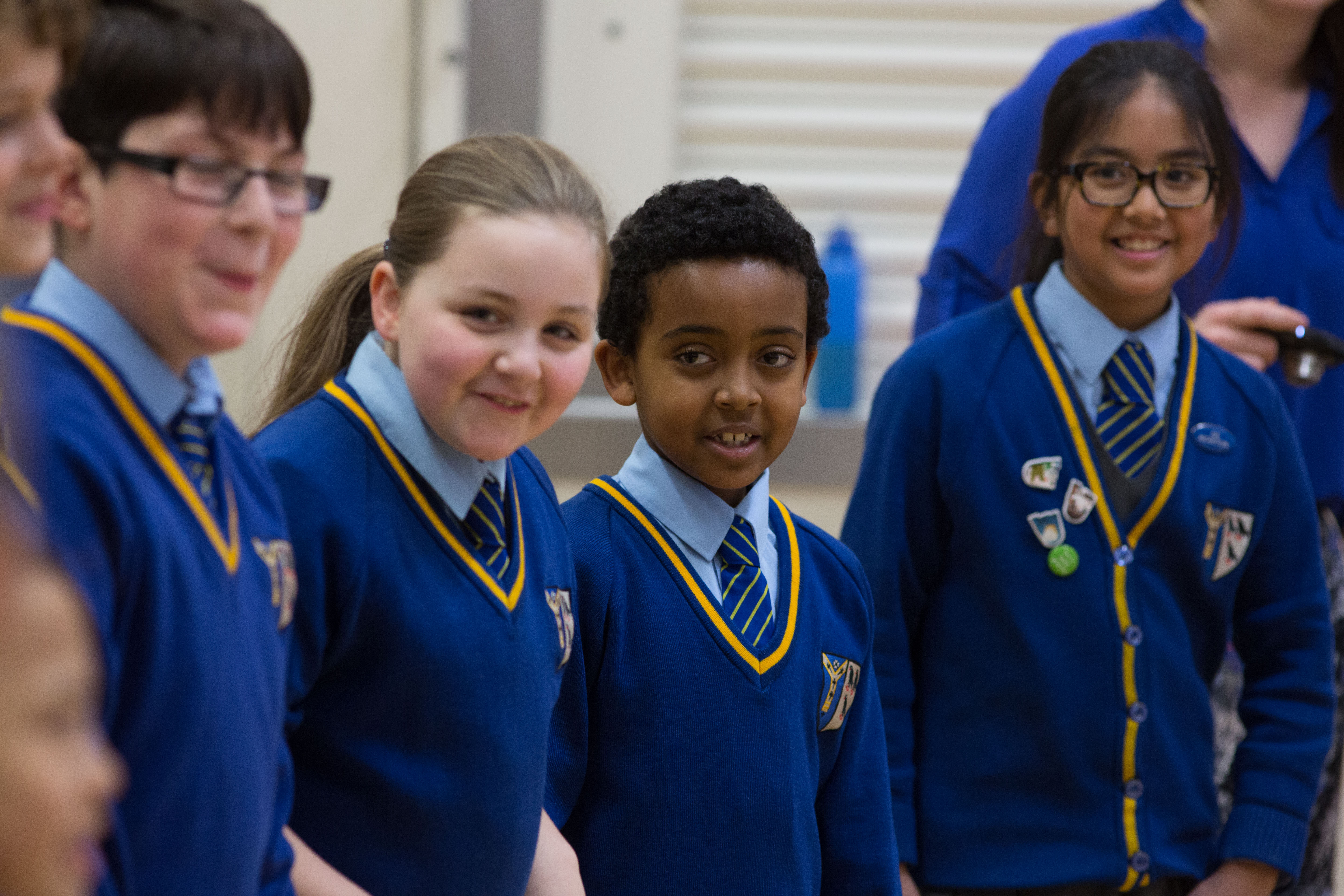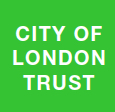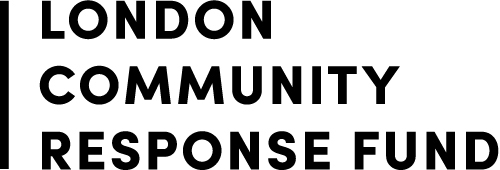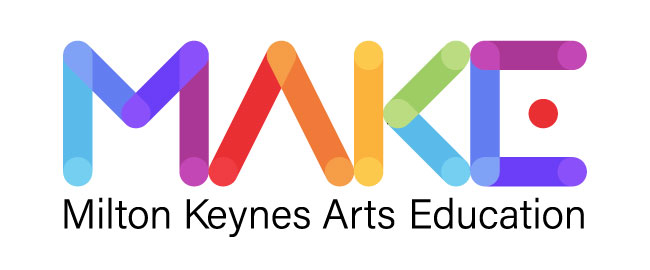Back to School: an arty start!
|
It’s officially September; the leaves are beginning to change colour, the air is cooler, and the uniforms are hung up ready for the first day of the Autumn term. We want to start back with a POW, with a bit of magic to get children thinking creatively and engaging with the syllabus. We want our new class to go into the year feeling excited about learning and working as a team. What better way to do that with some great introductory activities to start them off on the right foot? Here are our TEN TOP TIPS for a creative start to the new term:
1) We’ve All Got A Name – the whole class chants/sings (adapt to any backing track) ‘We’ve all got a name A First and a Last Tell us your name and we will clap’ (child says name – we clap/applaud) EYFS & KS1
2) Counting The group is in a circle. They are trying to count to 10 with only one person saying each number, however it is not decided ahead of time who says what numbers. Whenever two people call out the same number the group has to begin again at number one. Try the exercise with everyone’s eyes closed. This can be adapted for KS1 & KS2. It can also be a fun way to do explore multiplication.
3) Sculptors The group is paired up. One person in the pair is the sculptor and the other is the clay. The sculptor moves the clay into a pose of their liking and the ‘sculpture’ has to move as they are placed – holding very still all the while. When the sculpture is satisfied they switch parts and start again. This can be used to ‘sculpt’ characters from a book, play or for an ‘Important people’ theme.
4) Changeable Object The group all sits in a circle and the leader holds some mundane object – like a bottle of water. Each person gets a turn to handle the object – but they have to use it as something it’s not. For example, it might become: A spade digging in the garden, a football, a hairbrush or nail varnish. Year 2 – Year 6
5) Pass It Around Stand in a circle and send an action around – shake a hand, wink, wave, pat your head, etc. Try to do this as fast as you can whilst still making sure you still create a canon effect.
6) Experts One actor is sat on a chair in front of the group. The leader introduces the ‘expert’ to the rest of the group as the world’s foremost specialist in a certain field. For example:
All members of the audience are allowed to ask questions of the expert about their given specialty. The leader may want to start the questioning off. The ‘Expert’ has to make up the fictitious answers but always act exceptionally confident with their answers. Great for KS2 speaking and listening.
7) The Hunter or the Guard Set the group up in a circle and put a blindfolded volunteer in the centre on a chair. Place the keys near them or under the chair and have another volunteer silently approach them with the aim to take the keys away from them. Arm the Guard with a ‘baton’ (rolled up newspaper) to hit with when they hear someone approaching who is trying to steal the keys. Develops listening skills and hand/eye coordination.
8) Walk, Clap, Freeze One Clap means walk, two means stop, three means reverse directions. Vary – walk faster, slower, catch people’s eyes and then look away. Etc. Good for opening movement sessions and focusing the ensemble
9) Hummingbird One player leaves the room and the group decide where to hide a small object. When the player returns, they have to try and find the object. When they are close to the object the other players have to hum loudly, when they are far away from it they have to hum softly. Try alternating pitches and tuning. The game is also possible in a circle, by giving the object to a player to hide (sit on).
10) Sum Up with Puppet A fun way to recap and check learning at the end of a lesson. Have a puppet or stuffed toy that ‘falls asleep’ in the lesson and he wakes up at the end and wants to know what he has missed so the children recount it for the puppet – EYFS & KS1
Check out our Teaching Resources for videos with even more ideas, and keep an eye on the blog for even more TOP TIPS throughout the academic year! If you’re interested in an ongoing partnership with Artis or any of our projects, ArtsWeeks or CPD workshop then click here for more information or to book a demo session. |
01 Sep 2018 |

